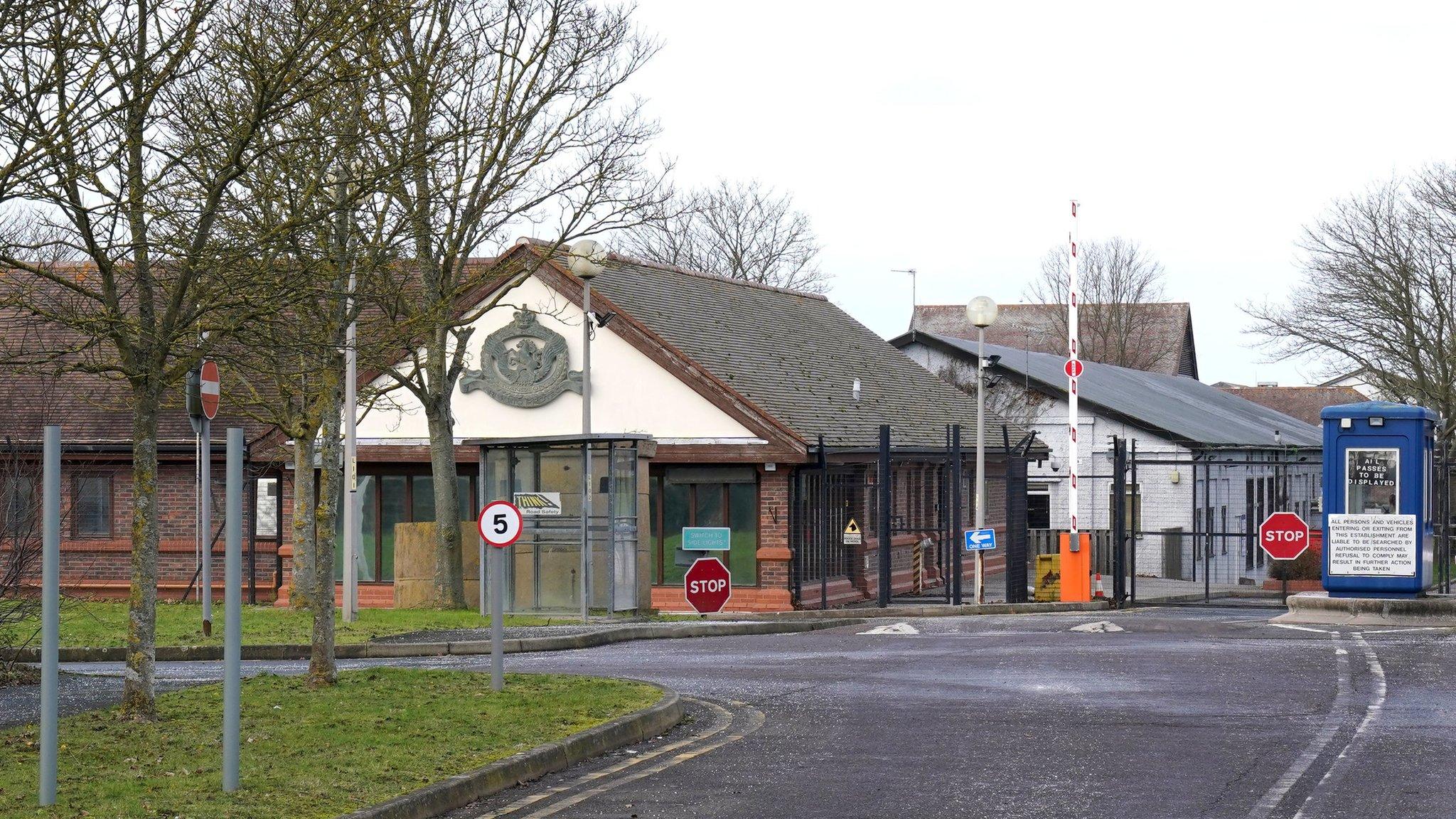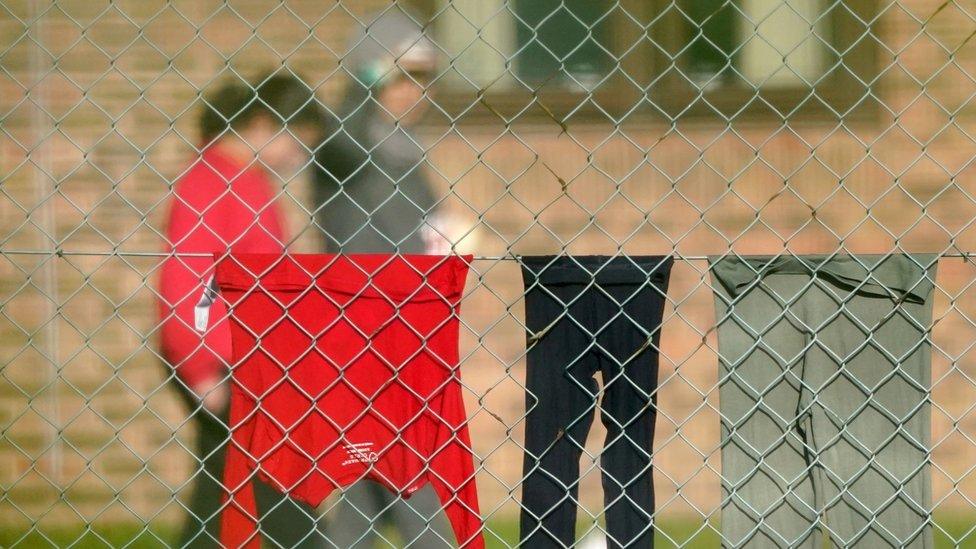Diphtheria cases confirmed at hotel housing asylum seekers
- Published

The diphtheria infection is spread by coughs and sneezes and can prove potentially fatal
A "small number" of diphtheria cases have been confirmed among asylum seekers at a hotel in the Humber region, officials have said.
The UK Health Security Agency (UKHSA) told the BBC the risk posed to the wider public "remains very low".
Hotels across the country are being used by the Home Office to house asylum seekers.
The Home Office said it was aware of people requiring "health interventions" and was liaising with UKHSA officials.
In a statement, UKHSA said: "Whilst we continue to see a very small number of diphtheria cases amongst asylum seekers in the region, the risk of diphtheria to the wider public remains very low as there is a high uptake of the diphtheria vaccine in this country."

What is diphtheria?

Diphtheria vaccination programmes protect most people in the UK
Diphtheria is a highly contagious and potentially fatal infection that can affect the nose and throat, and sometimes the skin.
It can lead to difficulty breathing, heart failure and paralysis.
The infection is spread by coughs and sneezes, or by sharing items such as cups, cutlery, clothes or bedding with an infected person.
It is rare in the UK, because babies and children have been routinely vaccinated since the 1940s.
There is a small risk of catching the disease while travelling in some parts of the world.
Source: NHS

A Home Office spokesperson added: "We are aware of reports of some people requiring health interventions at accommodation being provided in the Humber area. Home Office and UKHSA officials are working with the local services and the accommodation provider to offer all the appropriate support measures."
Earlier this month it was revealed a migrant who died at the Queen Elizabeth the Queen Mother Hospital in Margate on 19 November had diphtheria.
Hussein Haseeb Ahmed, 31, who arrived in the UK on a small boat seven days earlier, was being held at the Manston processing centre in Kent.

Hussein Haseeb Ahmed was processed at the Manston centre in Kent after arriving in the UK on a small boat
An inquest into Mr Ahmed's death was opened and adjourned until 30 May next year, when a pre-inquest review is expected to take place. The medical cause of death was described in court as unascertained.
The Home Office had initially said that there was no evidence he had died from an infectious disease, although a follow-up test for diphtheria later produced a positive result.

Follow BBC East Yorkshire and Lincolnshire on Facebook, external, Twitter, external, and Instagram, external. Send your story ideas to yorkslincs.news@bbc.co.uk, external.
Related topics
- Published27 November 2022

- Published28 November 2022

- Published5 December 2022

- Published12 November 2022
